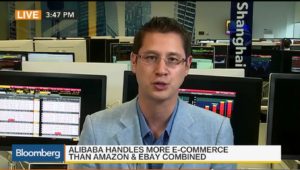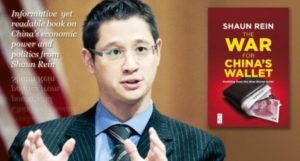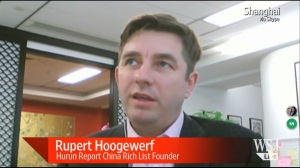 |
| Ben Cavender |
Cash was king, not so long ago in China. But as wealth and the middle class increased, mobile payments had an advantage, says
business analyst Ben Cavender. Because other payment tools like cards did not have a solid footprint, eager smartphone users adopted mobile payments quickly,
he tells That's Magazine. But: “Realistically, I don’t think cash will go away entirely, but it will certainly be relegated to a less important role.”
That's Magazine:
Ben Cavender, principal at
China Market Research (CMR), believes that besides the added convenience for consumers and merchants, timing has played a critical role in propelling the Middle Kingdom and its 1.4 billion citizens ahead of the rest of the world in mobile payment adoption.
“The growth of China’s middle-class population coincided with the rising popularity of smartphones,” he explains from his Shanghai office. “People who didn’t previously own any electronic goods suddenly have iPhones in their hands. It’s their primary tool and initiation point for technology, whereas in the West, a lot of older consumers who grew up with their desktops and laptops still primarily use those for their online activities.”...
Since its introduction in 2004,
Alipay has always been the preferred payment solution for any Taobao or Tmall purchases. For nearly a decade, Alipay enjoyed almost a total monopoly in China’s electronic payment game until
WeChat Pay came along in 2013.
Competition heated up when Tencent collaborated with the CCTV Spring Festival Gala to launch WeChat Red Envelope on Chinese New Year’s Eve of 2015. The infamous publicity stunt resulted in 1 billion hongbao transactions across the nation, making the platform a formidable opponent to Alipay.
With WeChat being China’s dominant instant messaging platform, Cavender says its offerings resonate with how today’s Chinese consumers use the internet and social media, hence its ‘stickiness’ makes it slightly easier to integrate with people’s daily lives...
Credit card companies and many Westerners’ ingrained habit of using cards as their primary payment option have prevented mobile payments from taking off, according to ... Cavender. In a country where Visa, Mastercard and American Express still have yet to fully penetrate through the masses, Chinese consumers were able to easily move on from cash and plug themselves directly into the ecosystem that Alipay and WeChat Pay have created.
The downside of this arrangement, Cavender points out, is that tech companies are not held to the same fiduciary standards that traditional financial institutions follow: “At the end of the day, your money is being handled by companies whose main objective is to sell you all sorts of services. There’s definitely a conflict of interest [that works against consumers].”
By signing up for WeChat Pay or Alipay, users are not only giving Tencent and Alibaba instant access to their online shopping behaviors, but also their offline spending habits too, not to mention their personal identity information and how much savings they have in their bank accounts...
But for many countries, an entirely cashless economy is still a long ways away. In China, for instance, cash still makes up a significant chunk of the Chinese economy – 66 trillion yuan in 2016, according to a central bank payments report. Though the number has been decreasing in recent years, completely eliminating cash will be difficult in practice, CMR’s Cavender says. “Realistically, I don’t think cash will go away entirely, but it will certainly be relegated to a less important role.”
More in That's Magazine.
Ben Cavender is a speaker at the China Speakers Bureau. Do you need him at
your meeting or conference? Do get in touch or fill in our speakers' request form.
Are you looking for more strategic experts at the China Speakers Bureau? Do check out this list.



























